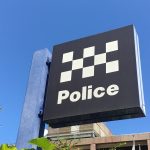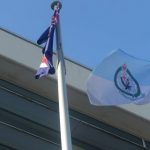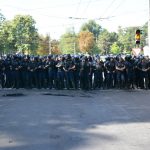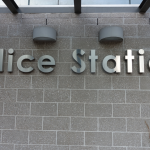Our kids are being harassed, ‘blacklisted’, fined and locked up
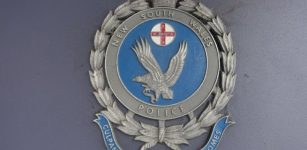
Disturbing information emerged recently about the way the NSW government and police force are treating our children.
Two million dollars in revenue
New figures reveal the state government generated $2 million dollars last year from fines issued to children by police.
The fines were issued to kids under the age of 16 for jaywalking, alleged offensive conduct and cycling offences. One of the biggest sources of revenue was ‘bad language’, which netted the government almost $90,000.
In one case, an eight-year old boy was fined for not having the correct ticket on public transport. While it is illegal to issue fines to children under the age of 10, the boy was given a ticket anyway, which then created administrative work for the Office of State Revenue – the agency which generally deals with fines – whose policy is to withdraw fine issued to kids under 10.
Police ‘blacklist’
The figures came hot on the heels of reports that children as young as 10 across the state are being placed on a secret police ‘blacklist’, and repeatedly targeted and harassed.
While the contents of the list are a closely guarded secret, the Public Interest Advocacy Centre (PIAC) working with University of New South Wales (UNSW) has released a study into a police policy known as the “Suspect Target Management Plan” (STMP).
Researchers explain that thousands may be targeted in this way, as:
“Individuals aren’t given a formal notification that they’re placed on the STMP, but what they do experience is repeated stops and searches every time they’re out on the street…
“And then police showing up at their homes at all hours of the night, all hours of the morning, sometimes a couple of times a day, sometimes a couple of times a week.”
Even those who have not committed any offences may be placed on the discretionary list.
Traditional community policing – a thing of the past
A NSW Police Force Spokesperson has called the STMP a ‘crime management strategy’.
However, the scheme appears to be an example of the shift from a ‘police service’ (as the organisation was previously called) towards a ‘police force’ (as it is now known); in other words, a shift away from an institution which serves the public – through, among other things, community policing – to one which focuses on enforcing the will of the government and generating revenue for the state.
In the eyes of many, gone are the days when police were approachable, interested in the welfare of individuals (especially children) and would work together with the community to produce positive outcomes.
To many, police officers in our state our now simply a militarised arm of the government employing a zero tolerance approach to enforcement regardless of the social result, while frequently abusing their power by employing heavy handed tactics on the people they are meant to ‘serve’, without sufficient accountability.
Weekly reports of police brutality and a shift away from ‘serving’ the public has many questioning whether we are getting sufficient value, transparency, accountability and respect for the $3.4 billion we pay to fund the NSW Police Force every year.
Locking up kids
Under Australian law, children who are aged 10 years and over can be held criminally responsible for their actions, and even locked up.
Youth workers, child psychologists and international organisations have long criticised this practice, calling upon the age of criminal responsibility to be raised to 12 or even 14 – in line with some European countries. They express concerns about the ability of the 10-year old brain to truly comprehend criminal culpability, and fears that criminal sanctions will set them further down the wrong path.
Research suggests that failing to provide children with appropriate guidance and behavioural models to emulate increasing the chances of them becoming dysfunctional adults, who either continuously buck the system or are ill-equipped for coping with it.
Indeed, studies suggest that simply punishing children rarely promotes positive behaviour; more often leading to rebelliousness and anti-social conduct.
We don’t want to Americanise
The last thing we want is for Australia to become like America, where last year, a teen boy, alone and chopping wood from the fallen branches of a tree was questioned by police after an onlooker called them.
Officers interrogated the boy who told them he was “trying to build a fort for [himself] and his friends.” His tools were taken away and he was put in a police car and taken to his parents.
In some US neighbourhoods, kids are encouraged not to play outside unsupervised because police and social workers are primed to equate ‘no presence of an adult’ with ‘neglect and danger, and launch an investigation. Police in the US have a reputation for being ‘heavy-handed’ and kids are even taught about police brutality in schools.
We need to give our kids a certain amount of leeway and freedom so they can experience life, and as adults, we need to be supportive so that they understand the ‘right’ behaviour and the ‘wrong’ behaviour in any circumstance.
Issuing fines and ‘blacklisting’ kids to make them police targets is no way to raise a generation of people with a healthy respect for the law.




